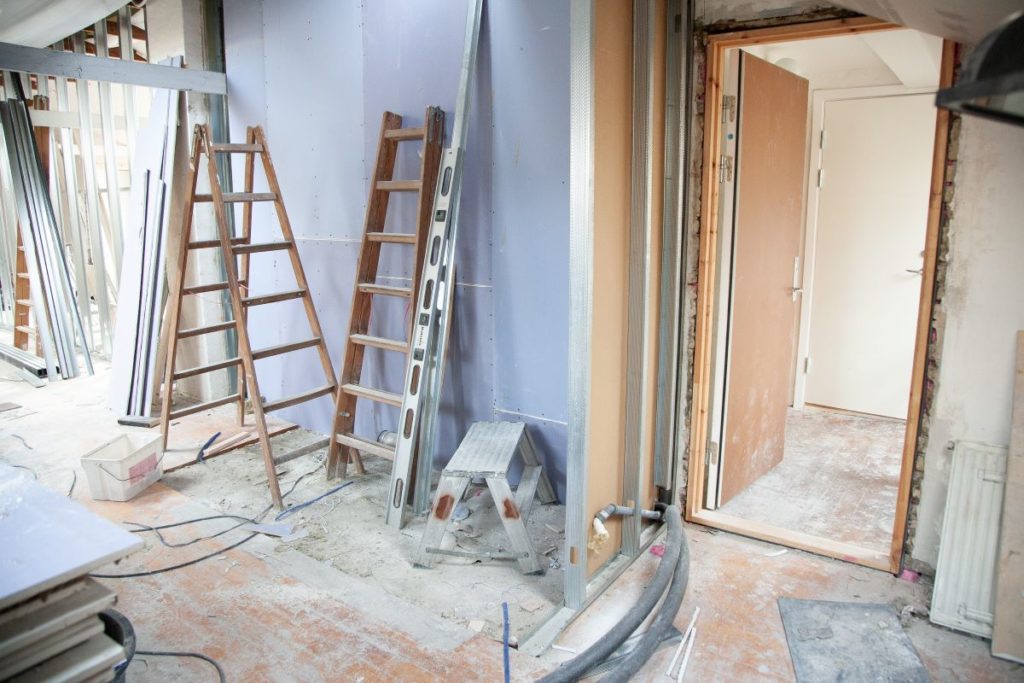Your house is an essential asset to you and your family for its monetary value and sentimental value. You and your partner started out a life together in that house, got a dog, and had your first child. Before you know it, you have two kids running around the living room chasing your dog. It makes you realize that you need more space.
When we buy a new house, we often think about our immediate necessities. We either need the space or want to hit a milestone or pick a place near work or relatives. If you’re a forward thinker, you would already be thinking about whether renovations are possible around the house. Because no matter our reasons to buy a house, there will often most likely come a time when we have to renovate it.
Renovation takes a lot if you’ve never done it before. It takes time, money, a lot of energy, and a lot more patience. But the good news is it’s not impossible, even if you plan to DIY or are hoping to save as much as you can. What you need for first-time renovations is an insight into what to expect and what you can actually do.
Maximize Livable Square Space
First of all, think if you actually have the space to add an extra room. Your attic or basement space is actually the most obvious option for this. The reason is that if you already have the space prepared, all you need to do is to have the basement finished, and you’re good to go.
If not, then you can look into rearranging the layout of your home or expanding it. You can sacrifice the family room and turn it into your nursery room, or extend the dining out to the veranda so you can move your living room and squeeze in a bedroom adjacent to it. This would require a lot more work, though, so keep that in mind.
Use Dividers to Create Zones
Walls can be suffocating and can feel too cramped if rooms are small and corridors are narrow. If your house has ample open space, you can ditch the walls and cleverly use furniture as dividers instead.
For example, if you need space for a home office or study, you can place a bookshelf in your living room to create a separation between the lounging area and your desk. You can also place a double deck in the middle of a bedroom to separate siblings, so each can have their own personal space. There are many ways to create separation without putting up walls, so go ahead and be creative.
Acknowledge Needs and Address Them
Think about why you are remodeling your house and if you really need to do it. Sometimes we think we need to do renovations, but a day of moving around furniture can give you a fresh perspective, too. Maybe your couch is too bulky, or your antique dresser can’t hold all of your makeup and clothes anymore. See if upgrading your furniture (or getting rid of it altogether) can give you the extra space you need.
You don’t need to drastically become a minimalist overnight, but if your issue is not having enough space for more things around the house, then maybe an extra room isn’t what you need. Schedule a day or two to sort and organize things around your house, then declutter. Take it one room at a time. You can start with the bedroom and deep clean it. Keep only the things that are currently useful to you and throw away or donate those that you barely use.

Modular Furniture Is Your Friend
If you decide on getting new furniture, modular is the way to go. Fixed or permanent furniture like wall shelving is difficult to deal with because you would have to tear an entire wall to get rid of it. In the same vein, big and bulky furniture can also be bothersome to move around or throw out, so really think about these factors when remodeling.
Work Around Your Budget
Having said all that, doing renovations is ultimately dependent on whether you have the budget for it or not yet. Especially if you are trying to make room for a new member of your family, you have to make sure that the new space has access to utilities such as electricity and heating. Renovating doesn’t only mean breaking a wall or adding another; it also means repainting walls, laying down new tiles or wood flooring, wiring the electricity, among other things. You need to factor these in before making your final decision.





